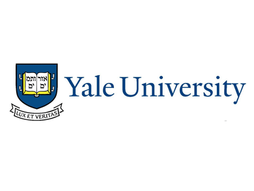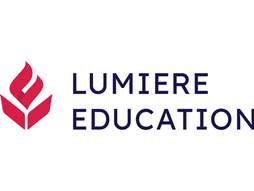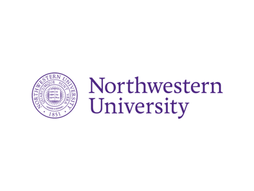8 Data Science Competitions for Middle School Students
If you are a middle schooler interested in STEM, especially subjects like statistics, computer science, and mathematics, you may want to consider diving into data science! Data science combines math, statistics, programming, analytics, AI, and machine learning to help gather insights from data. These insights then help organizations make informed decisions.
To explore real-world applications in the field and get some experience in solving problems with the help of data science, you can participate in data science competitions tailored for middle school students. While winning such competitions will get you some exciting and useful prizes, the participation experience in itself would be a worthwhile learning opportunity. That’s not all. The experience will be a great addition to your profile and college application. As a part of extracurricular, competing in school would tell recruiters or admissions officers that you are willing to expand your data science knowledge and skills beyond the classroom.
So, to get you started, here’s a list of 8 data science competitions for middle school students:
Location: Virtual
Eligibility: Students of ages 5–18 can apply. The team should have one 18+ member (can be a teacher, guardian, or someone else) who will also be the team leader.
Prize: The winning team will receive a classroom celebration merchandise pack
and a class trophy. The total value of all such prizes is capped at $180.
Application deadline: Registration opens on January 10, 2024. This also marks the start of the entry period for submitting projects.
Submission deadline: May 10, 2024
Microsoft’s Imagine Cup Junior is an opportunity for students between the ages of 5 and 18 to learn about technologies like artificial intelligence (AI), machine learning, and cybersecurity and how they can be used to solve some of the world’s biggest challenges. So, while not entirely a data science competition, the learning material will cover data science subjects and help you develop the know-how required for the field. This is a contest, where you, along with your team, will create a project to develop an original concept. The contest is divided into two categories—AI for Good and Technology for Good. During the contest, you will be given educational materials covering the concepts of the chosen category. Based on the learning from materials, you will choose a category-related concept, research a real-world problem related to the concept, and then come up with a solution to that problem. Then, you will prepare a submission to the contest to be judged. The results will be announced here about a month after the submission deadline, with 10 winning teams for the AI for Good category and 6 winning teams in the Technology for Good category. You can check out past winners and their winning ideas here.
Location: Varies based on your location. The national TSA conference is being held in Orlando, FL in 2024.
Eligibility: Middle school students who are affiliated with TSA to enter can enter a TSA competitive event.
Prize: Not specified, but finalists are given recognition/awards at a dedicated ceremony at the national TSA conference.
Registration deadline: Varies based on the conference. For the national conference this year, May 15, 2024, is the competitive event registration deadline.
Competition dates: The regional conference dates vary based on the state, but the national TSA conference is scheduled for June 26–30, 2024.
The Technology Student Association (TSA) is a not-for-profit national organization of students engaged in STEM fields. For its members, TSA conducts state and national conferences each year. A key part of these TSA conferences is their competitive events focusing on various STEM subjects, including data science and analytics. As a participant in this competitive event, you will spend some time researching the topic set for the year and then collect data, assess the data, make predictions, and document your work. To address a challenge at a conference, you will review specific data sets, provide insights, make predictions, and present your findings for evaluation. The top 10 finalists of each event get recognized at an awards ceremony at the national conference. You should look up your state TSA website here to find the dates for state conferences.
Location: Virtual
Eligibility: All Kaggle account holders over 18 can apply, but middle schoolers might be able to participate with the permission of their parents/guardians and that of the competition sponsor.
Prize: Cash prizes (the amount varies as per the competition)
Registration deadline: Varies as per the competition
Competition dates: Varies as per the competition
Kaggle is a well-known data science competition platform that offers courses and competitions for aspiring and experienced data scientists. From beginner learning challenges to advanced competitions, Kaggle has something for everyone. For instance, this year, the Women in Data Science (WiDS) Datathon Challenge #1 is being conducted on Kaggle. As a Datathon contestant, you will get a real-world dataset on the demographics, diagnoses, treatment options, and insurance provided to patients who were diagnosed with breast cancer from 2015–2018. Based on this information, you will have to predict if the patients received metastatic cancer diagnosis within 90 days of screening.
Participating in such virtual data science competitions can help you hone your analytical, programming, and coding skills, even if you are just getting started. You can even form teams for certain challenges, given that the host allows teams to participate. You can keep an eye out for new competitions throughout the year here and also check out our list of the top 10 competitions Kaggle has offered in the past and may still hold in the future. However, it is important to carefully check the rules for each competition before registering for it, as not all of them will be open to middle schoolers.
Location: Washington, D.C.
Eligibility: The top 10% of middle school student competitors of the Thermo Fisher JIC-affiliated science fairs can apply to the final competition.
Prize: There are multiple prizes for winners including $500 and an all-expense paid trip to Washington, D.C. for finalists. Winners are eligible to get bigger prizes of up to $25,000. You can find more information here.
Registration deadline: June 12, 2024
Competition dates: February–June (based on previous years dates). The finalists will be announced in September, and the finals week is scheduled for October 2024.
Organized by the Society of Science—a non-profit membership organization—the Thermo Fisher Scientific JIC is a STEM research competition. It is conducted in two stages. First, middle school students participate in an eligible science fair. Those who manage to make it to the top 10% of the scores at each fair are nominated to enter the main competition, which is the second stage. So, to be invited to participate in JIC, you will have to first participate in an affiliated fair. If nominated, your project will be judged during the summer. Then, if it makes it to the top 30 entries, you will be considered a finalist and get to spend a week in Washington, D.C. showcasing your project, competing in teams, and going on field trips.While not strictly a data science competition, the JIC lets you choose a topic you want to work on, so you can go for a data science-related problem. For example, in the past, JIC nominees have worked on creating a neural network for Cardiac Auscultation. You can check out the profiles of previous finalists and their projects here.
Location: Virtual
Eligibility: Middle school students who are enrolled in public, private, or home schools in the United States or abroad are eligible to participate in ACSL contests
Prize: At the end of the regular season, top-scoring participants receive a certificate. For the ACSL Finals, the top-scoring students in each division will get a prize and a certificate. Registration deadline: Registration typically closes December-end.
Competition dates: Four contests are typically held each year, but 2024–2025 dates are yet to be announced.
The American Computer Science League (ACSL) competition focuses on testing and enhancing K-12 students’ artificial intelligence and computing skills. To ensure students get to contest based on their skill and education level, ACSL has five divisions—Senior, Intermediate, Junior, Classroom, and Elementary. Middle school students will typically be placed by their school in the Junior and/or Classroom division. The season is split into four contests (sessions), each testing fundamental concepts in computer science, including number systems, boolean algebra, digital electronics, and more. As part of the Junior division, you will also solve a problem using Python, C++, or Java. This can help you gauge your data science skills. At the season’s end, the top students in each division get certificates as well as invites to the finals. The top students in finals then get prizes along with certificates. All the contests are conducted online. Last year, about 8,000 students participated in the ACSL competition. You can check out the ASCL site for updates regarding dates, study materials, and FAQs.
Location: Virtual
Eligibility: Students who are 14 and a half years old or younger (by the start date of the contest) can apply.
Prize: Certificate
Registration deadline: Registration will open in September and close on November 6, 2024
Competition dates: November 6–19, 2024
COMAP or the Consortium for Mathematics and its Applications is a mathematics education non-profit. COMAP’s MidMCM is an international competition that allows middle school students to work in teams and solve problems through mathematical modeling and writing skills. Mathematical modeling is a key part of data science, so this competition can be a great way to explore the field. As this is a team competition, your advisor (a faculty or staff member at the school) will register you as part of a team. As a contestant, you and your team will get 14 days to choose a problem, complete a modeling solution, and submit it electronically. Previous MidMCM problems include designing a dog park and developing a schedule to make a group day at a park as good as possible. You can check the complete guidelines here before registering for the contest.
Location: Virtual
Eligibility: Open to everyone
Prize: Monetary prizes may or may not be offered based on the type of competition.
Registration deadline: Varies based on competition
Competition date: Varies based on competition
Bitgrit is a platform meant for data scientists, offering them a chance to participate in rewarding challenges. But, certain challenges are meant for beginners. For instance, the Weather Forecast Challenge on the platform is a learning contest, in which you will be expected to assist a fictional agricultural company with weather prediction to help it make informed farming decisions. You will be given historical weather information of the region, using which you need to predict the weather. Participating in such practice competitions is a great way to hone key data science skills and add to existing knowledge. You can keep an eye out for upcoming and ongoing competitions here.
Location: Virtual
Eligibility: Open to everyone, but specific requirements can vary based on the challenge
Registration deadline: Rolling registrations
Competition dates: Vary as per the competition
MachineHack is a platform for generative AI professionals, but it does offer data science tournaments and hackathons for tech enthusiasts to enhance their skills. For instance, its recently concluded SkyDive Data Challengers Quest focused on testing participants’ data analytics and machine learning skills. It consisted of 3 rounds—a 30-minute MCQ round, a coding round to tackle 10 Python-based coding problems, and a machine learning hackathon. At the end of such challenges, you will have a better understanding of your ability to provide data-driven solutions required in the field of data science and analytics. You can keep an eye out for upcoming and ongoing challenges here.
For those of you that read so far, here’s a bonus program that you can consider!
One other option - Lumiere Research Scholar Program
If you’re interested in pursuing independent research in data science, you could also consider applying to one of the Lumiere Research Scholar Programs, selective online high school programs for students founded with researchers at Harvard and Oxford. Last year, we had over 4000 students apply for 500 spots in the program! You can find the application form here.
Also check out the Lumiere Research Inclusion Foundation, a non-profit research program for talented, low-income students. Last year, we had 150 students on full need-based financial aid!
Stephen is one of the founders of Lumiere and a Harvard College graduate. He founded Lumiere as a PhD student at Harvard Business School. Lumiere is a selective research program where students work 1-1 with a research mentor to develop an independent research paper.
Image Source: Microsoft Imagine Cup Junior logo









